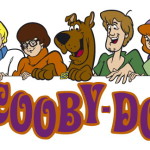
 If you’re looking for a classic superhero revenge story, then you might find one in Torrent #1.
If you’re looking for a classic superhero revenge story, then you might find one in Torrent #1.
Torrent #1 is the debut issue of a new series from creators Marc Guggenheim (Arrow) and Justin Greenwood (Stumptown), following the vengeful descent of Michelle Metcalf, a wife and mother of one who also moonlights as the superhero Crackerjack. Pulling triple duty seems to come easy for her, but when her personal life takes a turn for the worst, she takes matters into her own hands to exact revenge on those who’ve wronged her.
My biggest issue with Torrent #1 is how rudimentary it is. Despite claims made by creators Guggenheim and Greenwood, Torrent doesn’t feel especially “new” or original for the superhero genre, and any of its elements that could be seen as novel or subversive have themselves already been done to death elsewhere. Guggenheim claims the initial idea of the series was to “turn Spider-Man into the Punisher,” which could have been intriguing enough had Marvel not literally done it themselves fairly recently, saying nothing of every other “edgy” take on superheroes seen in titles over the past few decades like Kick-Ass and The Boys. We’re at the point in comic book history where it’s almost more subversive to deliver a more optimistic superhero tale than a pessimistic one, and Torrent starts off on a wrong note by not differentiating itself enough on the base premise.
It’s hard to be truly original anymore, especially in cape comics, but there’s a difference between playing it straight and playing it straight but thinking you’re not. Beyond the surface level Spidey/Punisher comparison, the story presented in Torrent #1 is just full of tropes that aren’t elevated or subverted in any significant way. Snarky superhero? Check? Annoying sidekick? Check. Nefarious supervillain? Check. Unspeakable tragedy befalling the protagonist? Check. Like I mentioned earlier, any semblance of an interesting twist here —namely Crackerjack being married with children— has already been done elsewhere in titles like The Incredibles and Spider-Woman. The unoriginality even extends to the dialogue of the characters, with such infractions including (but not limited to) references towards various other fictional superheroes who shall not be named directly for legal reasons, and Crackerjack remarking upon the copyright-unfriendly nature of her chosen alias. It’s just a weird creative choice to point out the ways in which your story is derivative of other things, but then do little to justify or transcend them.
There’s also a number of uncertain aspects to this world, such as where it falls on the idealistic/cynical scale or what Crackerjack’s whole “deal” is. What are her powers or abilities, exactly? We see that she’s got her own superhero hideout full of tech, but how do her miniature bomb sparkles (if that’s what they are) work? For how specific Torrent #1 is in some ways, it’s also annoyingly vague in anothers. I’d expect a little more specificity or genre savviness from an accomplished writer like, but a lot of it reads like he hasn’t paid attention to trends in the superhero genre he’s been working in for many years now.
I may not be big on Guggenheim’s script or concept, but Greenwood’s art does a lot of work to keep the reader interested. Combined with colors by Rico Renzi, the loose, frenetic arc almost calls to mind Unbeatable Squirrel Girl (which Renzi previously worked on, doing great work there) and there’s a lot of inventiveness in the way Greenwood depicts the action. Keith Wood’s lettering is also top notch, really leaning into the comic booky superhero-ness of it all with plenty of bangs, pops, and whams to go around. The whole thing looks great, even if I don’t think there’s a lot of narrative substance at the center of it.
Guggenheim has also stated that he intends to build Torrent out into a broader universe akin to contemporary superhero comic book hits like Black Hammer and Radiant Black, but even with the risk of putting the cart before the horse aside, those are both distinctive and interesting takes on well-worn material that justify the expenditure put into them. I can’t really imagine how much appeal a bigger Torrent-verse would have based on this first issue. It’s possible it picks up in later issues and distinguishes itself more from the crowded superhero market, but that remains to be seen.
(Also… why is it called Torrent? There could be an obvious answer to this that I’m missing, but whatever it may be, it’s lost on me.)




